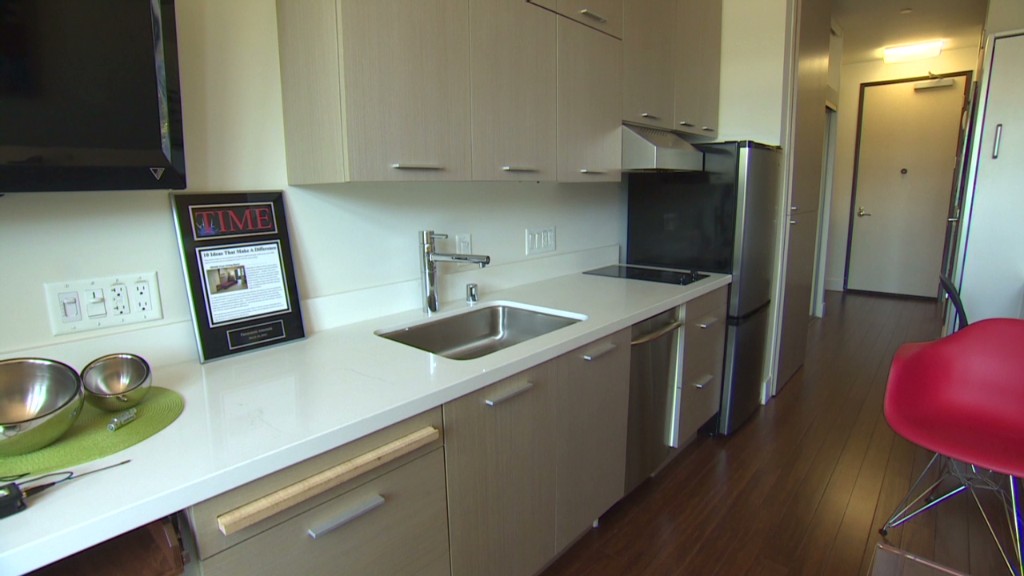
Borrowers with poor math skills made up a higher percentage of homeowners in foreclosure during the housing bust than those who were skilled at arithmetic.
According to a study released Monday, math-challenged borrowers were five times more likely to default on their loans.
"Whether you're good with numbers predicts how likely you are to default," said Stephan Meier, an associate professor of business at Columbia Business School, who authored the report along with economists from the Federal Reserve of Atlanta and the University of Lausanne.
The study examined several hundred borrowers who held mortgages issued in 2006 and 2007 -- right before the mortgage meltdown. Of the study subjects, 25% of the borrowers who scored in the lowest bracket for math skills had defaulted on mortgage payments within five years of getting the loans. Meanwhile, only 5% of those in the top tier for math skills defaulted.
Related: Homebuyers clueless about mortgages
The survey sample included homebuyers from a variety of backgrounds, from blue collar workers to corporate professionals. Their math ability covered the gamut -- from those with very limited abilities to a mathematician with a six-figure salary, according to Kristopher Gerardi, an economist with the Federal Reserve of Atlanta.
The researchers controlled for differences in overall intelligence by measuring for verbal and general IQs, as well as math skills, and controlled for socioeconomic factors, such as age, sex, income, ethnicity and local labor market conditions.
Related: Farewell 3% mortgages
Surprisingly, it did not seem to matter what kind of mortgage the borrowers had, the researchers found. "Those lacking [math skills] will still get in more trouble later on even if they pick a plain vanilla mortgage," said Meier.
The researchers asked the survey participants a series of five basic questions. The simplest question asked them how much a $300 sofa would cost at a half-price sale. The most difficult asked how much a savings account of $200 would grow to after earning 10% interest for two years.
Related: How smart are you about mortgages?
Determining why those with poor math skills default on mortgages more often than others will take more research, but previous studies suggest that people who struggle with simple math also struggle with handling their finances, according to Gerardi. This group tends to budget less carefully, misuse credit cards and mishandle financial emergencies, such as temporary income losses. When they hit a rough financial patch, they may not understand the math well enough to negotiate the most favorable settlements with lenders.
"When bad events happened, they don't react optimally," said Meier.

The report suggested that benefits could come from improved financial education. The more homeowners understand money matters, the less likely they are to mishandle them.
Correction: An earlier version of this article incorrectly identified the university of one of the authors of the study.


